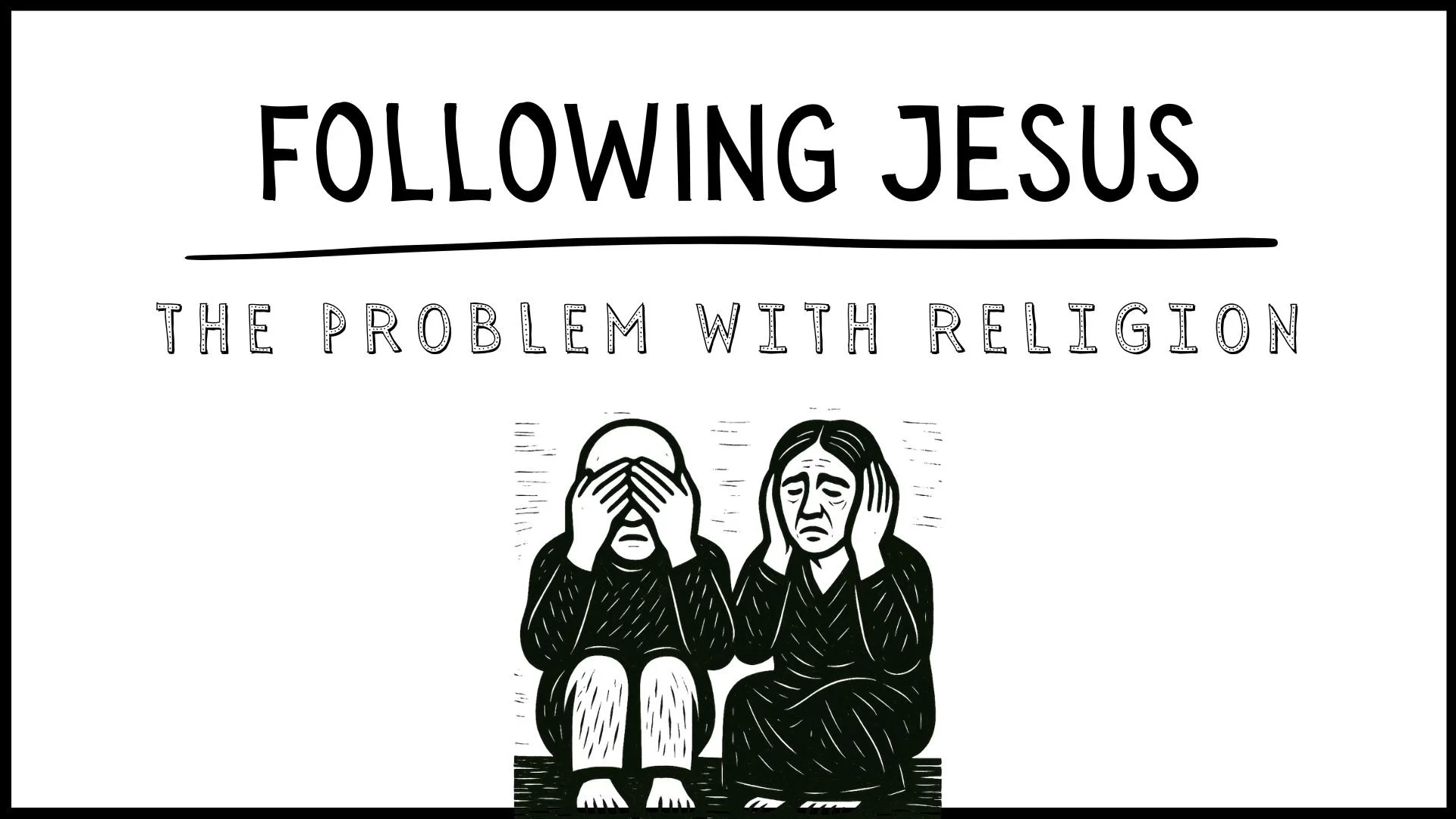The problem with religion
Passages (NIV): Matthew 12:38-45. Preacher: Mark Kingston
We don’t often say this out loud, but most of us quietly assume the Pharisees were nothing like us. They’re the bad guys of the story, the ones who get it wrong, the ones we’d never be. We imagine ourselves with the crowds, or the disciples, or the people Jesus heals. Never the Pharisees. But that’s the mistake. Because when you look closely, their story starts a lot nearer to ours than we’d like to admit.
They began with longing. With pain. With a desire to be faithful in a hard world. And somewhere along the way, longing hardened into control. Faithfulness shifted into fence-building. They started creating rules to keep people safe, but over time those rules became the point. What began as devotion became a structure they needed to protect. And that is simply religion at work. Saying God’s name, but built on fear. Speaking of holiness, but driven by anxiety, power, safety, and control.
We might not be drawing up new religious laws for our neighbours, but we do the same thing in gentler, subtler ways. We cling to what’s familiar because it feels safe. We shape church life around what suits us. We make quiet decisions about who is “in” and who is “a bit different.” We tidy things up so they stay manageable. It doesn’t look dramatic, but it is the same inner move: faith becoming something we can manage rather than something God leads. Which means we’re closer to the Pharisees than we ever thought. And, as the rest of the passage shows, that is a dangerous place to stand.
Because Jesus says this drift has a cost. A serious one. It blinds you. Not the small sort of blindness where you sometimes miss God’s nudge. The deep kind. The kind that looks straight at God healing a broken life and can’t see it for what it is. The kind that misses God’s presence inside you and God’s work around you because the house is neat but empty. Religion without presence. Order without life. A tidy room with no Spirit in it.
So what do we do with that?
We turn and name where pride has crept in, where control has taken hold and where fear has shaped our choices more than hunger for God. Then we choose a different posture: the Simeon and Anna posture. They had the same longing the Pharisees once had, but they kept giving it back to God in prayer. They kept waiting, longing and trusting.
And just as the Pharisees religiousness led to blindness, Simeon and Anna’s faithful and prayerful longing for God led them to have remarkable sight. So, when the moment came and Jesus was brought to the temple as a baby, they saw Him at once. Everyone else walked past, blind as ever. But Simeon and Anna saw.
That’s the contrast the passage puts in front of us. And this matters because here’s what’s at stake: when God shows up, when he starts to move in a fresh way, will we miss him or even work against him… or will we see him, welcome him, and join him in what he’s doing?
To bring this home a little more, take a look at this clip from the Jesus Revolution movie:
REFLECTION QUESTIONS
Past Religion
How have I experienced religion in my past, the kind that felt heavy, controlling, or more about rules than God? How did it shape me, and what traces of it might I still carry?My Own Religiousness
Where do I spot religiousness in myself today? What habits, preferences, or reactions show it? And underneath those things… what is really driving them? Fear? Insecurity? A need to feel safe or right? Something else?The Cost of Blindness
How does Jesus’ warning about blindness land with me? Does the thought of missing God, of not recognising him when he moves, stir anything in me: worry, sadness, urgency, hope?The Simeon and Anna Way
They lived with longing, but instead of taking control they kept handing that longing back to God in prayer, again and again, until the day God moved. What would it look like for me to live that way, open, watchful, persistent, ready to see God when he comes near?Longing into Prayer
What God-shaped longing is already in me, for healing, restoration, renewal, freedom, new life? Can I turn that longing into prayer now, offering it to God rather than trying to manage it myself?

